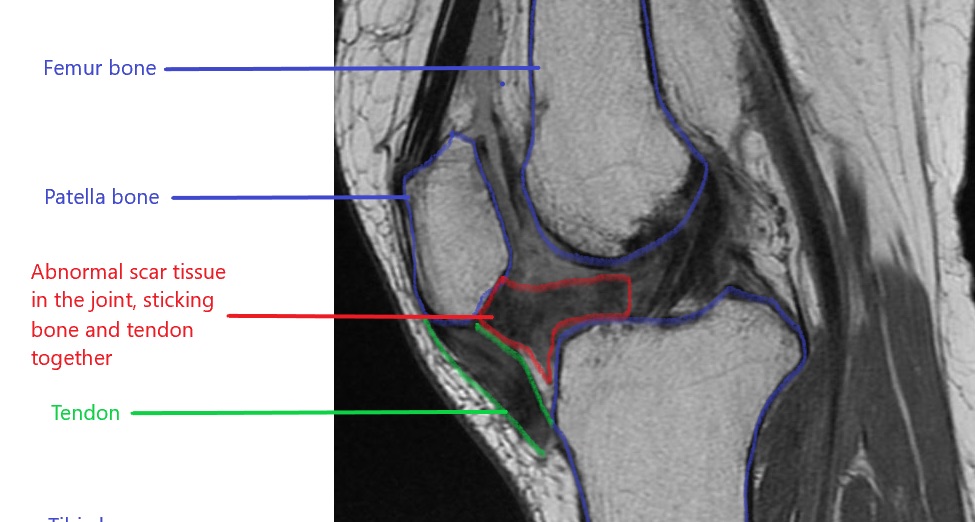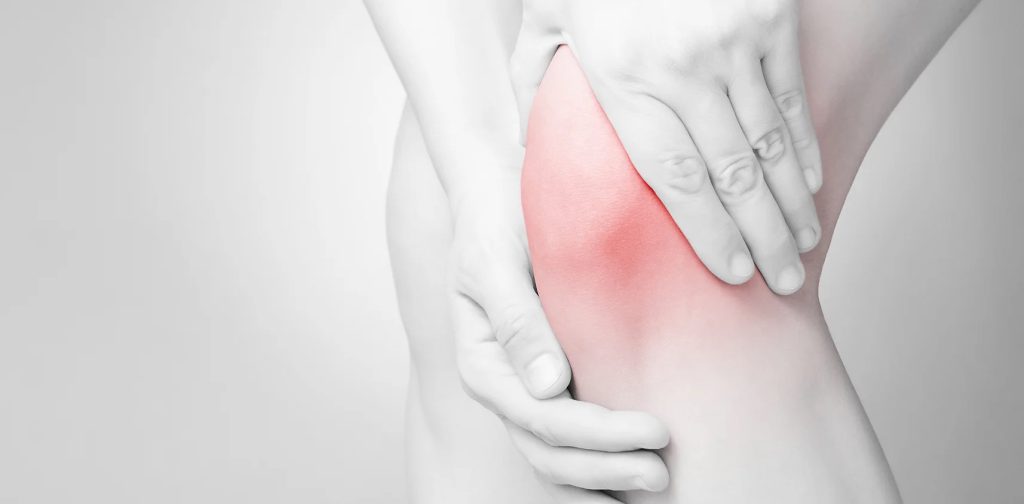
Knee Stiffness after Surgery

Persistent Knee Stiffness after Surgery or Injury
Persistent pain and stiffness of the knee, after an injury or surgery, may be not just ‘recovery pains’.
Depending on each case, symptoms that last for more than 1 to 3 months after injury or surgery may require further investigations.
Read on to find out more!
Common Knee Injuries
Knee injuries such as an Anterior Cruciate Ligament (ACL) tear, cartilage or meniscus injuries are very common injuries. Following treatment with either conservative treatment or key-hole surgeries, the vast majority of patients are able to recover well and can return to their previous level of activity or sport.
Recovery Pains are common too
During the recovery, pain and stiffness of the knee is a very common feature. This occurs in the first weeks or months, and a lot of it is due to tight soft tissue and weak muscles around the knee. Also, the body’s natural response to injuries and surgeries is to form new tight tissue, which can sometimes contribute to pain and stiffness. Sometimes, prolonged casting or immobilisation will also contribute to stiffness.
Generally, the Orthopaedic surgeon and Physiotherapist will be able to ascertain whether such pains and stiffness is an ‘expected’ part of recovery or not.
However...
If you have persistent pain and stiffness that lasts for more than 1 to 3 months after injury or surgery, you may require further investigations. The possible causes of such situations may include, but are not limited to:
1) Excessive internal scar tissue
2) Injured or damaged tissue not healing well
3) Missed injuries
In certain cases, bacterial infection of the knee may also cause persistent pain and specific tests are carried out to rule out an infection.

Excessive scar tissue is a cause of persistent pain and stiffness after surgery or injury
Excessive scar tissue may occur due to each person’s healing response, or may be due to prolonged immobilisation or casting. This may manifest in one of two forms: arthrofibrosis, or cyclops lesion. Arthrofibrosis refers to widespread scar tissue formation within the knee joint. This will lead to you feeling increased stiffness in mornings, pain and tightness after walking or the inability to bend or straighten the knee fully.
Cyclops lesion is more specific for a type of scar tissue formation that occurs after ACL reconstruction surgery. The scar tissue forms at the front of the reconstructed ligament and may cause stiffness, pain after activity, and also a sense of a clunk within the knee.
How do we assess and treat such problems?
The Orthopaedic surgeon will assess the knee thoroughly and may utilise an MRI scan to give a definitive picture of what might be causing the pains. Some first line treatment may include intensive Physiotherapy to help break up internal scar tissue or the use of a steroid injection into the knee. However, if these methods do not produce the desired improvements, the most effective treatment then is an arthroscopic (key-hole) procedure. In this procedure, long thin instruments are used to physically break up the internal scar tissue. This restores movement and removes pain.
Following such treatment, it is necessary to keep the knee moving as often as possible to prevent scar tissue from forming again. Regular physiotherapy and daily self-exercises are vital to the recovery and an eventual return to your activities of daily living or sport.
Centurion Orthopaedic Centre
38 Irrawaddy Road
Mt Elizabeth Novena Hospital Specialist Centre #07-40
Singapore 329563









